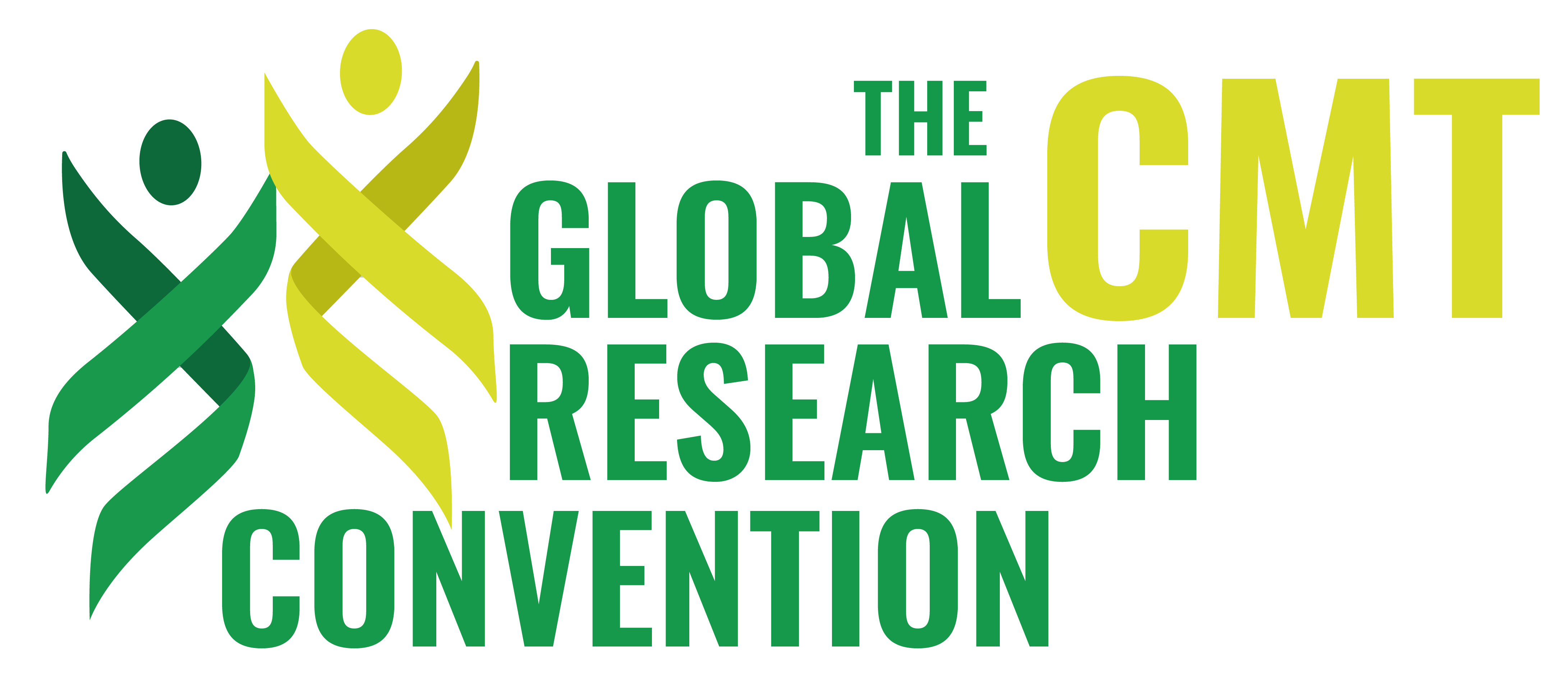Speakers

Charles Abrams, MD, PhD
University of Illinois, Chicago
Dr. Abrams is a physician-scientist at the University of Illinois Medical School in Chicago where he is head of the Neuromuscular Division. He received his master’s and doctoral degrees from Albert Einstein College of Medicine and trained in neurology at Cornell Medical Center and in neuromuscular medicine at Johns Hopkins University.
Dr. Abrams’s laboratory focuses on elucidating the mechanisms of the X-linked form of Charcot-Marie-Tooth disease and other related disorders. His work has been funded by the NIH, CMT Association and Muscular Dystrophy Association.

Anthony Antonellis, PhD
University of Michigan
Dr. Antonellis is a leading researcher in the field of peripheral nerve development and disease, and Professor and Chair of the Department of Human Genetics at the University of Michigan. The primary focus of his laboratory is elucidating the molecular mechanisms and pathways underlying Charcot-Marie-Tooth disease. Among his accomplishments in this area is the discovery of numerous mutations in tRNA synthetases that underly several forms of CMT.
Dr. Antonellis earned his Bachelor of Science degree from the University of Massachusetts, then after stints working at Genzyme Genetics and the Harvard Medical School, he went on to earn his PhD from the George Washington University and NIH Joint Program in Genetics. Before joining the faculty of the University of Michigan, Dr. Antonellis also completed a postdoctoral fellowship with the NIH National Human Genome Research Institute.

Paul August, PhD
Chief Scientific Officer at ReviR Therapeutics
Paul is a scientific and business leader with extensive drug discovery experience across multiple therapeutic areas. His primary focus has been on genetically defined diseases where he has advanced therapies in benign hematology diseases and inborn errors of cellular metabolism. Paul is currently the Chief Scienfific Officer at ReviR Therapeutics, an innovative biotech company with a pipeline of RNA modulators across multiple disease areas. Previously, he was Vice President of Discovery Biology at Agios Pharmaceuticals, where he was responsible for the scientific strategy and development of Agios’s genetically defined disease research portfolio. Prior to that, he was vice president at Ligand and ICAGEN Pharmaceuticals, leading the early rare disease portfolio and progressing the discovery research therapeutic programs. Paul was also the co-founder and chairman of the board of AcuraStem, a company focused on ALS therapies. Paul spent much of his career at Sanofi and legacy companies, with increasing responsibilities that included lead discovery, as well as target discovery and validation. Paul is an advocate for CMT research and a CMTRF board member since 2018.

Chris Austin, MD, PhD
Flagship Pioneering
Christopher Austin, M.D., is CEO-Partner of Flagship Pioneering and Founding Director of the National Center for Advancing Translational Sciences (NCATS). Dr. Austin is a trained clinician and geneticist, with more than 20 years of experience in translational research in both the public and private sectors. He joined Flagship Pioneering – which conceives, creates, resources, and develops first-in-category bio platform companies to transform human health and sustainability – as CEO-Partner in 2021 and currently serves as Chief Executive Officer of Vesalius Therapeutics. Before that, he was the founding Director of NCATS at the National Institutes of Health (NIH) where he transformed translation – the process by which interventions that benefit patients are developed and deployed – from an empirical process into a predictive science.
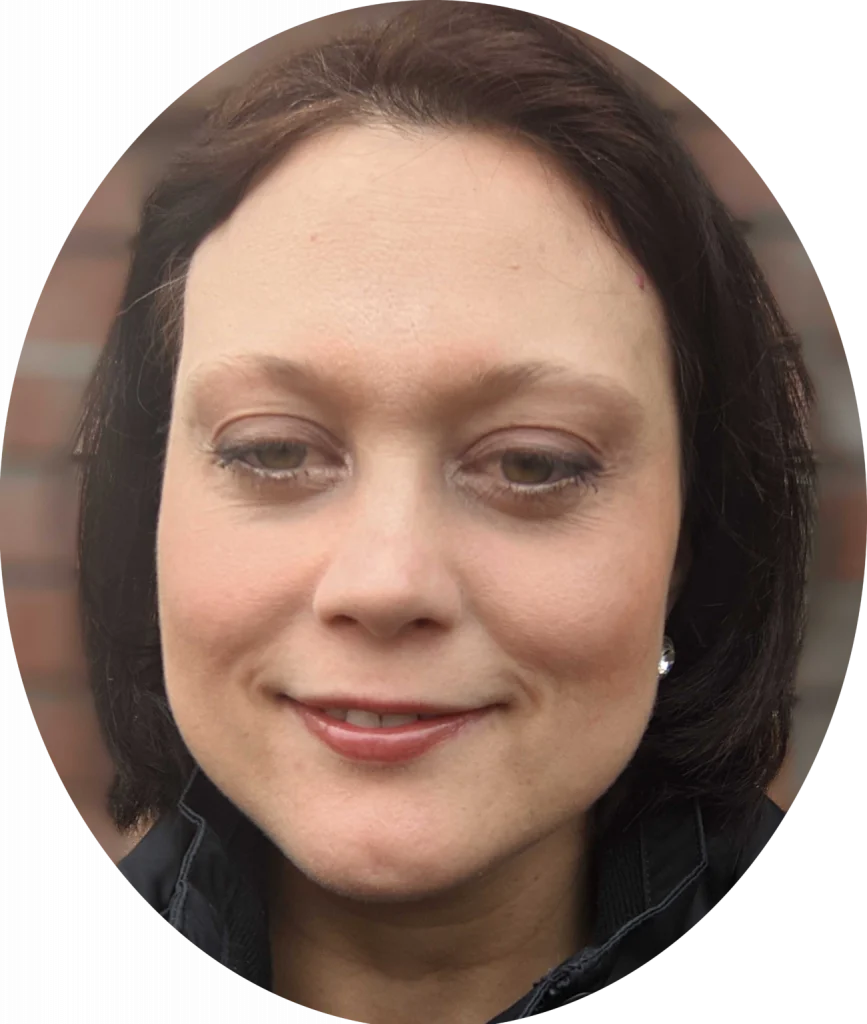
Elisabetta Babetto, PhD
University at Buffalo
Dr. Elisabetta Babetto is a Research Assistant Professor of Pharmacology and Toxicology at SUNY Buffalo, and a principal investigator in the Institute for Myelin and Glia Exploration and the Neuroscience Program of the University at Buffalo, NY. She studies the molecular and metabolic interactions of glia and axons after injury and in disease. Her work defined a novel instructive role of Schwann cells based on metabolic reprogramming to regulate the resistance of injured axons to degeneration. She brought Schwann cell metabolism to centerstage during axon degeneration and her laboratory continues to focus on the identification of axonal energetic demands and glia mechanisms of energy support after axotomy and in murine models of neurodegenerative conditions.
Dr. Babetto’s training in axon degeneration began when she was recruited by Dr. Michael Coleman in Cambridge, UK, where she graduated in 2010 with a PhD in Molecular Biology. Her graduate studies contributed to elucidating the mechanisms of action of the WldS protein, which confers a strong delay of axon degeneration after neuronal injury. She then joined the laboratory of Prof. Aaron DiAntonio at Washington University School of Medicine, St. Louis, MO, for postdoctoral training. During this time she discovered a novel pathway regulating axon survival, mediated by the E3 ubiquitin ligase Phr1, in mouse models of acute nerve injury. In 2014, she was recruited to the University at Buffalo, where she has established her laboratory and shifted her focus from an axon-centric view of degeneration to a comprehensive understanding of the cellular mechanisms during nerve damage.

Rachel Bailey, PhD
University of Texas Southwestern Medical Center
Dr. Rachel Bailey has a broad background in studying protein aggregation in neurodegenerative disorders, modeling neurological diseases in rodents, developing gene therapies to treat those disorders, and identifying biomarkers for human testing. She earned a dual B.S. degree in biology/bioinformatics and molecular biology from Rensselaer Polytechnic Institute. Under the guidance of Dr. Jada Lewis, she began her PhD training in Neuroscience at the Mayo Clinic and completed it at the University of Florida. For her postdoctoral training, Dr. Bailey worked in the Gene Therapy Center at the University of North Carolina Chapel Hill in the lab of Dr. Steven Gray. She contributed to the preclinical development of an AAV-based gene therapy for the rare pediatric neurodegenerative disorder giant axonal neuropathy (GAN). The therapy is currently being tested in a Phase I clinical trial. Dr. Bailey joined the UT Southwestern faculty in 2018 with appointments in Pediatric Neurology and the Center for Alzheimer’s and Neurodegenerative Diseases. Dr. Bailey and her team engineer adeno-associated viral (AAV ) vectors for gene-replacement and gene-silencing approaches, develop methods to target AAV to select areas of the central and peripheral nervous systems, execute proof-of-concept studies in cell culture models, and perform pre-clinical studies in animal models with the goal of translating these therapeutic approaches to human trials.

John Blackwood, PhD
Samsara Therapeutics
Dr. Blackwood is accomplished in the development and application of novel drug discovery platforms, with 10 years’ experience at leading biotechnology companies. Previously at Kymab Ltd, he delivered a key haematology biologic asset into early-stage clinical development and is inventor on several patents. Starting his industry career at IONTAS Ltd, he led the early-stage discovery of several immuno-oncology candidate drugs. Previously, John held post-doctoral positions at the University of Cambridge and the The Wellcome Trust Centre for Mitochondrial Research. John obtained his PhD at the University of Edinburgh investigating the molecular mechanism of trinucleotide instability, which is responsible for several neurodegenerative disorders.

Alessandra Bolino, PhD
San Raffaele Scientific Institute
Dr. Alessandra Bolino is the Head of the Inherited Neuropathy Unit in the Division of Neuroscience at the Ospedale San Raffaele in Milan, Italy. She was a member of the Board of the International Peripheral Nerve Society, PNS, and is presently serving as a member on various committees. She received a PhD in Medical Genetics and postdoctoral training in Human Genetics at the University of Oxford, UK. Research in her group focuses on inherited neuropathies with the aim to identify novel disease genes; to elucidate molecular mechanisms regulating myelination and myelin homeostasis in the nerve, and to design strategies for the therapy of these and related disorders.
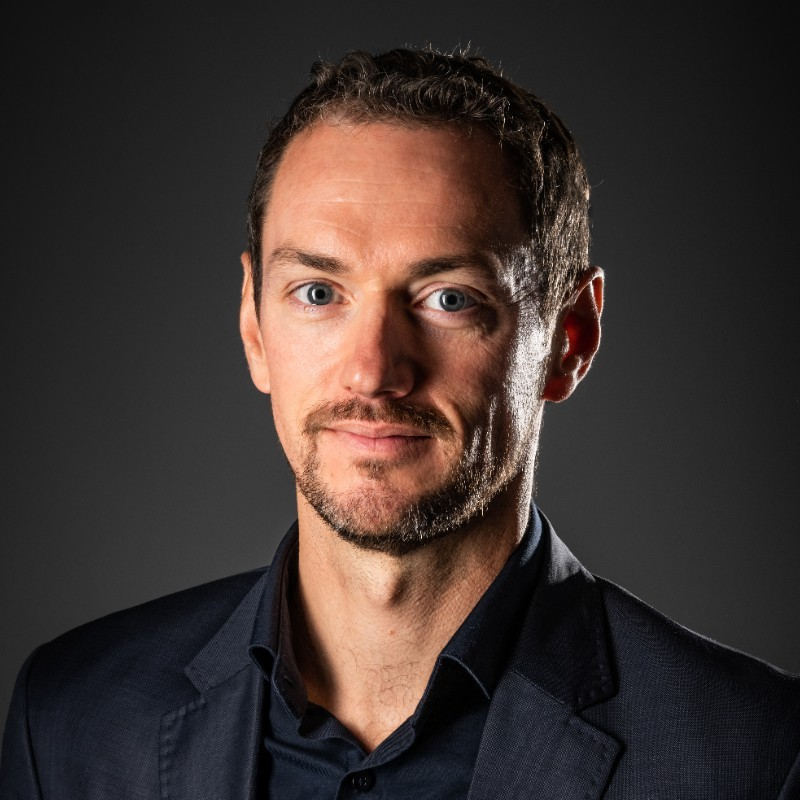
Sylvain Celanire, PhD
Augustine Therapeutics
Sylvain Celanire is Chief Executive Officer of Augustine Therapeutics, a spin-off biotechnology company of the VIB/KU Leuven institute. Sylvain has more than 20 years of experience as an executive director, entrepreneur, and advisor in the biotech/pharma sector, with extensive collaborations with patient advocacy groups, foundations and governmental organizations in UK and Europe. Sylvain began his career in 2002 as a Principal Scientist at UCB Pharma (Belgium) where he led the Histamine H3 project for the treatment of cognitive disorders, with the ultimate delivery of Phase 1 clinical candidate UCB2892. In 2007, he joined Addex Therapeutics (CH) where he served as Laboratory Head, Group leader, and then Associate Research Director in Medicinal Chemistry within the CNS Department. In 2015, he co-founded Pragma Therapeutics (France), a biotech company developing novel therapeutics for the treatment of neuropsychiatric and otic disorders, winner of the UK OBN Bioseed™ “One-to-Watch” award in 2018. Sylvain holds a PhD in organic, heterocyclic and medicinal chemistry from the University of Rouen (France) and he is co-inventor of 24 patent applications, co-author of 4 book chapters, 3 review articles, and 15 full peer-review articles.

Ken Cornell, CO, FAAOP
Cornell Orthotics & Prosthetics
Ken Cornell earned his bachelor degree in biology at St. Anselm’s College in Manchester, NH and completed his postgraduate work in orthotics and prosthetics at UCLA in 1980. Ken has long been active on the board of the New England Chapter of the American Academy of Orthotists and Prosthetists and is a past president. He lectures regularly at local colleges and hospitals. “I have always considered it an honor to work in the fields of orthotics and prosthetics. I find myself more motivated than ever. Each patient challenges me to apply my experience, knowledge and skill to achieve the highest level of activity possible for that person. For some, that means playing sports, for some it is shopping with family and friends, for others it is being able to walk independently around the house without pain. I have a particular interest in the orthotic management of CMT (Charcot-Marie-Tooth) disease.

Andrea Cortese, MD, PhD
University College London Queen Square
Institute of Neurology
Andrea Cortese is a Neurologist and MRC Clinician Scientist at the University College London, UK and University of Pavia, Italy. His research focuses on the discovery, modelling and treatment of novel causes of inherited neuropathies and other neurodegenerative diseases.
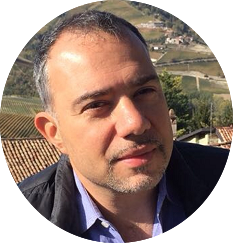
Maurizio D'Antonio, PhD
San Raffaele Scientific Institute, DIBIT
Maurizio D’Antonio graduated in Molecular Biology from the University of Milan in 1998. He then moved to University College London (UCL), UK, in the laboratory of Prof. Rhona Mirsky and Kris Jessen, where he obtained his PhD in 2004. In London he learned how to use microarrays and bioinformatics to study Schwann cell development and myelination. He then moved back to Italy, in the laboratory of Dr. L. Wrabetz, at the S. Raffaele Scientific Institute (DIBIT), where he applied the knowledge in bioinformatics gained in the UK to study gene expression in neuropathy mouse models. His studies in Dr Wrabetz’s group where pivotal in the identification the Unfolded Protein Response (UPR) as one of the driving mechanism is many forms on neuropathy. Since 2014 he is the Group Leader of the Biology of Myelin Unit at the San Raffaele Institute. Dr D’Antonio has long standing interest in myelination and has been using transgenic mice as models for hereditary demyelinating neuropathies for many years. Currently, oe of the topic in the laboratory is the understanding of how protein misfolding can cause disease, and how the modulation of stress response mechanisms, including the UPR, may represent appealing therapeutic options in CMT.
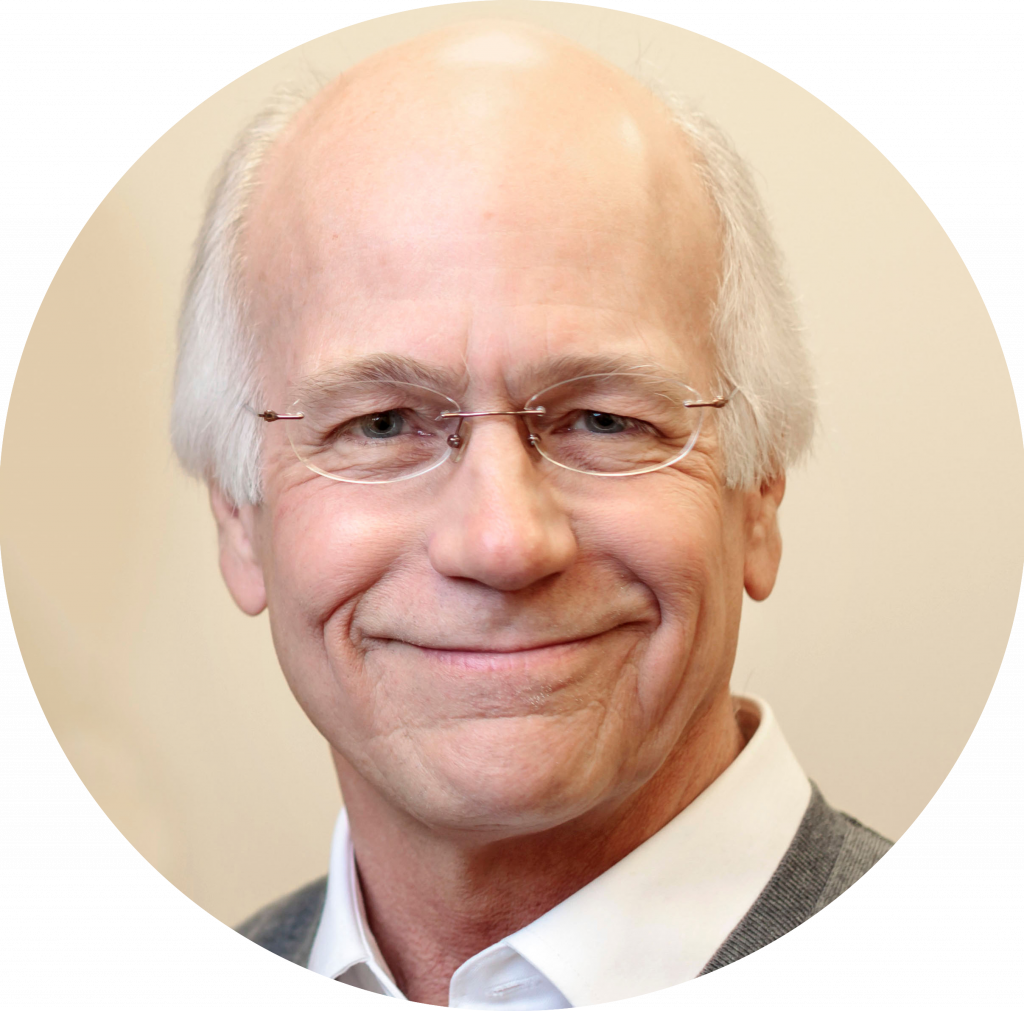
Gerald Dorn, MD
Washington University in St Louis;
Mitochondria in Motion, Inc.
Gerald Dorn investigates fundamental mechanisms regulating mitochondrial homeostasis, programmed elimination and metabolic remodeling in cardiac and neurological disease. His observations that neurohormonal signaling promotes transcription of mitochondrial death proteins established a cellular mechanism for cardiac hypertrophy progression to heart failure. His studies of mitochondrial fusion and fission revealed dual, mutually exclusive functioning of mitofusin (Mfn) 2 as mitochondrial fusion protein or mitochondrial receptor for Parkin, depending upon phosphorylation status. Dorn’s determination that MFN phosphorylation regulates MFN function by inducing a change in MFN conformation enabled the development of small molecules that destabilize the fusion-constrained MFN conformation, thus promoting mitochondrial fusion and motility. Based on this technology, Dorn founded Mitochondria in Motion, Inc. which, along with its sister company MEm, is advancing multiple classes of small molecule mitofusin activators to reverse neurodegeneration in CMT2A and other neurodegenerative conditions.

Melissa Dupont
Sanofi
Melissa Dupont is a Patient Engagement Lead as part of the Patient Informed Development and Health Value Translation Team, supporting primarily the Neurology portfolio. This role is the face of Sanofi R&D to external Patient Advocacy organizations. A major responsibility of this role is to drive the patient voice into effective clinical development strategies with measurable impact for the portfolio which seeks to differentiate Sanofi products, increase product value, and accelerate time to new treatment options for patients. She’s also an active contributor to TransCelerate’s Patient Technology and Patient Experience workstreams, among other initiatives related to patient engagement. She joined the Patient Insights team 2.5 years ago, bringing over 15 years in the pharmaceutical industry with various leadership experience in the management and oversight of trial operations among multiple therapeutic areas and phases.
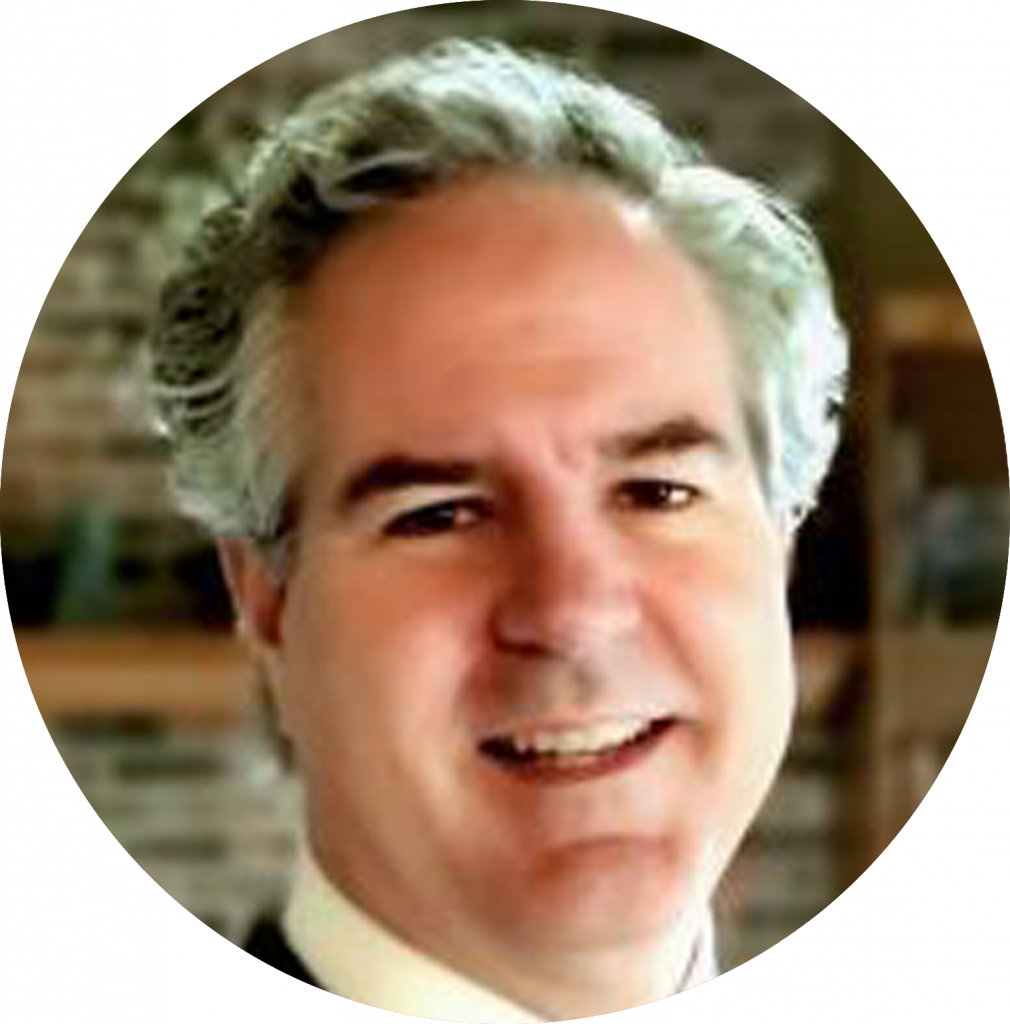
Keith Fargo, PhD
CMT Research Foundation
Keith joined the CMT Research Foundation after working for 23 years in the research field, including clinical trials, academia, and nonprofit experience. Most recently, Keith worked for seven years at the Alzheimer’s Association, where he led efforts to grow the largest international research conference and scientific society related to dementia science, along with growing engagement in clinical trials. He also led the team of researchers who annually produced Alzheimer’s Disease Facts and Figures, the definitive source of information related to Alzheimer’s incidence and prevalence, mortality and morbidity, and use and costs of care. Keith also brings expertise in public communication of research, making science accessible to people of all backgrounds.
After earning his PhD in neuroscience at Indiana University, Keith worked in peripheral nerve science at Edward Hines, Jr, VA Hospital in the Rehabilitation Research & Development Service, and at Loyola University Chicago—Stritch School of Medicine in the Department of Molecular Pharmacology and Therapeutics.
Keith joined the CMTRF in order to help catalyze scientific progress in this exciting field, and will bring his experience to bear on our critical research mission. He is based in the Chicago area with his wife Susan and 3 children, where they enjoy family life, reading, and Formula 1 racing.

Vera Fridman, MD
University of Colorado School of Medicine
Dr. Vera Fridman is an Associate Professor in the Neuromuscular Section at the University of Colorado’s (CU) Anschutz Medical Campus, clinical director of the Charcot-Marie-Tooth Association Center of Excellence at the University of Colorado Hospital, and Associate Director of Medical Student Education for the Department of Neurology. She earned her BS in Neuroscience at Brandeis University and MD at Tufts University before completing Neurology Residency at the University of Pennsylvania where she was awarded the Penn Pearls Award for Excellence in Clinical Teaching and Steven L. Galetta Resident Teaching Award. Dr. Fridman completed Neuromuscular Disease Fellowship at Brigham and Women’s and Massachusetts General Hospitals, followed by a Clinical Research Fellowship in Hereditary Neuropathy at Queen Square, University of Iowa, and University of Rochester Hospitals and Clinics. She then joined the faculty at Harvard Medical School and Massachusetts General Hospital where she carried out a biomarker, natural history study, and 2-year trial in Hereditary Sensory Autonomic Neuropathy Type 1 (HSAN1) which demonstrated clinical improvement of neuropathy in response to treatment with L-serine, one of the first biologically rational therapies for a hereditary nerve disease.
Dr. Fridman’s research to date has focused on paving the way for, and executing, treatment trials for neuropathy. She completed a longitudinal natural history study of CMT1A in the largest patient cohort reported to date in partnership with the Inherited Neuropathy Consortium Rare Disease Clinical Research Network. Other work has included the evaluation of biomarkers, including atypical sphingolipids, in diabetic neuropathy related to type 2 diabetes.

Scott Q. Harper, PhD
Nationwide Children's Hospital and
the Ohio State University
Scott Q. Harper, PhD, is a principal investigator in the Center for Gene Therapy at the Abigail Wexner Research Institute at Nationwide Children’s Hospital and a professor of Pediatrics at the Ohio State University College of Medicine. Dr. Harper is currently a standing member of the National Institutes of Health (NIH) Neurological Sciences and Disorders B (NSD-B) study section and a member of the Scientific Advisory Board of the Charcot-Marie-Tooth Association (CMTA). He also serves on three committees of the American Society of Gene and Cell Therapy (ASGCT) and is the chief scientific advisor at Armatus Bio. Dr. Harper earned his doctorate degree in Cellular and Molecular Biology from the University of Michigan Medical School, where he worked in the lab of Jeff Chamberlain, MD, to develop the first generation of micro-dystrophin gene therapies for Duchenne Muscular Dystrophy (DMD). He then completed postdoctoral training in the lab of Beverly Davidson, PhD, at the University of Iowa, where he developed RNAi-based gene therapies to treat dominant neurodegenerative diseases. Dr. Harper’s primary research focus at Nationwide Children’s has been developing adeno-associated virus (AAV) based gene therapies to treat neuromuscular and neurological disorders, including muscular dystrophy (FSHD, LGMD1A), peripheral neuropathy (CMT1A, CMT2D, CMT4B3) and dominant epilepsy. His lab has also focused on developing models and studying the pathogenesis of facioscapulohumeral muscular dystrophy (FSHD).

Leslie Hayes, MD
Boston Children's Hospital and
Harvard Medical School
Leslie Hayes is a pediatric neuromuscular specialist at Boston Children’s Hospital in Boston, MA, USA. She received her medical degree from Weill Cornell Medical College. She completed pediatric and child neurology residencies at Boston Children’s Hospital followed by a fellowship in neuromuscular medicine at Mass General Brigham. She is interested in clinical trial development for rare genetic pediatric neuromuscular disorders and multidisciplinary care for children and their families with neuromuscular disorders.
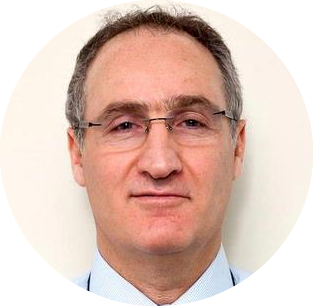
David Herrmann, MBBCh
University of Rochester
Dr. Herrmann is Unit Chief of the Neuromuscular Unit & Director of the Peripheral Neuropathy Clinics and Cutaneous Innervation Laboratory at the University of Rochester. Clinically his interests are in the diagnosis and care of patients with various types of peripheral neuropathy. He has a particular interest in inherited neuropathies (Charcot Marie Tooth neuropathy and related disorders). Dr. Herrmann additionally established one of the first cutaneous innervation laboratories in the USA at University of Rochester in 2000, for diagnosis of small fiber neuropathy. Dr. Herrmann’s current research interests include inherited neuropathies and he is Principal Investigator in Rochester for the NIH sponsored Inherited Neuropathy Consortium Rare Disease Clinical Research Center. Dr. Herrmann focuses on new gene identification for inherited neuropathies, development of novel neuropathy outcome measures and biomarkers and experimental therapeutics.

Matthew Jennings, PhD
Columbia University
Dr. Matthew Jennings is a researcher interested in the pathophysiology of neurogenetic and neurodegenerative disease and how this can be used to further therapeutic development. At the University of Cambridge, under the supervision of Dr. Rita Horvath, he worked to identify new serum protein biomarkers of Charcot-Marie-Tooth disease (CMT) and related peripheral neuropathies by a proteomic screening approach. Through international collaboration, this identified the proteins NCAM1 and GDF15 as biomarkers associated with disease progression in CMT, in both pre-clinical mouse models of disease and in a genotypically diverse patient cohort. In collaboration with the group of Dr. Kleopas Kleopa, ongoing studies aim to better understand the relationship between NCAM1/GDF15 expression levels and pre-clinical gene therapies. Currently, Matthew is a postdoctoral research fellow at Columbia University in New York, mentored jointly by Dr. Alejandro Chavez and Prof. Serge Przedborski. Here, his primary research focusses on the development of high-throughput gene editing technologies to better understand the genetic modifiers of neurodegenerative disease.

Marina Kennerson, PhD
ANZAC Research Institute and
Sydney Medical School
Dr. Kennerson is a Professor of Neurogenetics with the ANZAC Research Institute and Sydney Medical School, University of Sydney, Australia. She received her Bachelor of Science (Hons) degree from University of New South Wales and PhD from the University of Sydney. Her scientific training included mapping genes for inherited neurodegenerative diseases and using genomic technologies to identify gene mutations. It is through her training that Dr. Kennerson was introduced to CMT and she has continued to contribute to this field of research.
Dr. Kennerson heads the Gene Discovery and Translational Genomics Inherited Peripheral Neuropathies Program at the ANZAC Research Institute. Her team has discovered several neuropathy genes and is doing pioneering research to discover the role of structural variation mutations causing gene dysregulation as a new disease mechanism for hereditary neuropathies. Her research program includes functional studies for recent gene (ATP7A and PDK3) and SV mutation (CMTX3 and DHMN1) discoveries using induced pluripotent stem cell derived motor neurons and animal models (C. elegans and mouse).
Dr. Kennerson enjoys teaching and has run international linkage, bioinformatics and next generation sequencing courses at Sultan Qaboo University, Oman, Cold Spring Harbor Laboratories, USA and the University of Malaya, Malaysia and is the Genetics Unit of Study Co-ordinator for the Masters Postgraduate Program at the Brain and Mind Centre, Sydney. Dr. Kennerson is the Scientific Secretariat of the Asian Oceanic Inherited Neuropathy Consortium (AOINC) and a member of the International Charcot-Marie-Tooth and Related Neuropathies Consortium (CMTR) Board.

Shibi B. Likhite, PhD
Nationwide Children's Hospital
Shibi B Likhite, PhD, is a Research Scientist at the Nationwide Children’s Hospital, Ohio with over 13 years of experience in the field of Gene & cell therapy, and in vitro disease modeling. He is originally from India where he completed his BS in Microbiology (University of Pune, 2006) and MS in Biochemistry (M S University of Baroda, 2008). He further received his PhD in Molecular, Cellular and Developmental Biology from The Ohio State University in 2014 under the guidance of Dr. Brian Kaspar, PhD. During his doctoral and post-doctoral studies, Dr. Likhite worked on developing gene therapies for multiple fatal neurodegenerative disorders like Spinal Muscular Atrophy (SMA), Amyotrophic Lateral Sclerosis (ALS) and Rett Syndrome with translation of one intravenous (SMA) and two intrathecal gene therapy programs (Batten disease) to the clinic. In 2018, Dr. Likhite became research scientist and continued to work on developing gene therapy programs for treatment of multiple neurological neuromuscular as well as neurodegenerative diseases, specifically spearheading the preclinical work for the recently approved Phase I/IIa clinical trial for treatment of IGHMBP2-related disorders (SMARD1/CMT2S).

Christian Lorson, PhD
University of Missouri and Shift Pharmaceuticals
Dr. Lorson is a Curators’ Distinguished professor, associate vice chancellor for research, and associate dean for research and graduate studies at the University of Missouri in the College of Veterinary Medicine. He received his bachelor of arts degree from Colorado College and his PhD training focused upon transcriptional regulation and pre-mRNA processing in small DNA viruses at the University of Missouri School of Medicine (Molecular Microbiology and Immunology; Dr. David Pintel). He joined Dr. Elliot Androphy at Tufts University School of Medicine/Children’s Hospital in Boston, MA where he started his work in Spinal Muscular Atrophy (SMA). Dr. Lorson was named the Muscular Dystrophy Association’s Robert G. Sampson Neuromuscular Research Named Fellow during this time and started his independent research career with a faculty position at Arizona State University in 2000. Dr. Lorson moved to the University of Missouri in 2002, developing research programs in SMA molecular genetics and pre-clinical drug development. He became the Scientific Director and co-Chair of the Scientific Advisory Board at FightSMA in 2005 through 2017. Dr. Lorson’s research currently focuses on the molecular genetics of several neurodegenerative diseases, including SMA, SMA with respiratory distress, ALS, and CMT. Developing novel therapeutics, such as antisense oligonucleotides and AAV vectors, and animal models to address these diseases is a particular emphasis area. His work has been funded by the National Institute of Neurological Disorders and Stroke, Muscular Dystrophy Association, Cure SMA, FightSMA, the Gwendolyn Strong Foundation, the Spinal Muscular Atrophy Foundation, the Department of Defense, CMT RF, and several pharmaceutical companies. He is a member of the MDA Research Advisory Committee and serves as an ad hoc member and grant reviewer to a number of SMA research foundations worldwide. He is also the co-founder and current Chief Scientific Officer of a biotechnology company, Shift Pharmaceuticals, with pre-clinical development projects in SMA and CMT1A.
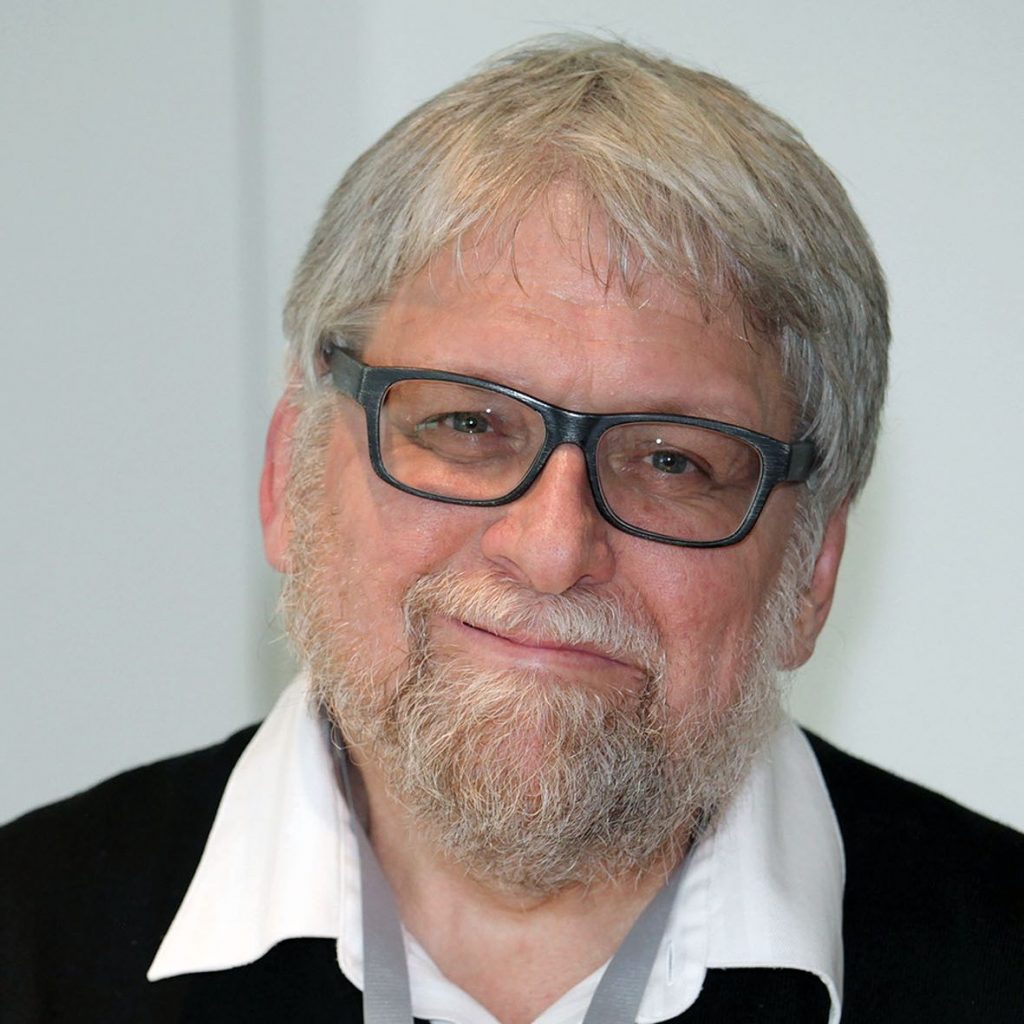
Jim Lupski, MD, PhD
Baylor College of Medicine
Dr. Lupski’s research focuses on understanding mutational mechanisms and linking specific mutations and genes to human disease. Dr. Lupski started his laboratory at Baylor College of Medicine in 1989, where he still resides. His most significant contributions to genomics are centered around conceptualizing and understanding the mechanisms underlying genomic disorders. This is seen through his studies of Charcot-Marie Tooth (CMT) disease – specifically, duplication of the CMT1A gene. In 1991, Dr. Lupski showed that CMT1A copy number variation (CNV) and gene dosage are causes of CMT-related peripheral nerve dysfunction. In 2014, he and his colleagues found that the presence of three copies of CMT1A on one chromosome 17, a phenomenon known as triplication, causes a more severe form of CMT. His group was also the first to describe non-allelic homologous recombination as a mechanism for CNV formation and chromosomal aberrations. These discoveries, with parallels and potential applications to other genomic disorders, furthered scientific understanding of the relationships between genetic variants and disease outcomes, helped define the field of genomic medicine, and are paving the way for precision medicine. In addition to his scientific leadership, Dr. Lupski received an honorary doctorate in 2011 from the Watson School of Biological Science at the Cold Spring Harbor Laboratory. He has coauthored over 700 scientific publications, including 88 in The American Journal of Human Genetics, and is a co-inventor on more than a dozen USPTO DNA molecular diagnostic patents.

Rudolf Martini, PhD
University of Würzburg
Professor Rudolf Martini earned a PhD in Zoology from the University of Karlsruhe. He then carried out postdoctoral research in Melitta Schachner´s laboratory, both in Heidelberg and Zürich (Swiss Federal Institute of Technology), with studies focused on the development and regeneration of peripheral nerves with particular emphasis on cell adhesion molecules and extracellular matrix molecules. After his Habilitation in 1994 (allowing to get a faculty position), he moved to the University Hospital of Wuerzburg in 1996, where he was appointed a University Professor. The focus of his group is to analyze the pathological role of neuroinflammation in animal models of distinct neurological disorders with presently poor treatment options, with the aim to alleviate disease by modulating disease-related inflammation. Based on his experience in the PNS, he first focused on demyelinating CMT disorders, a topic still researched by the group. Around 2006, myelin-related disorders of the CNS, like leukodystrophies and multiple sclerosis, but also lysosomal disorders, extended the research spectrum and led to off-label treatments in the latter orphan disorders. Lastly, his group investigated the role of inflammation in neural tissue of CNS and PNS of aging mice. In addition to neurobiological, cell biological, behavioral and distinct microscopical techniques, the group applies single-cell transcriptomics including further bioinformatic processing and validation. As a translational component, the group uses readout parameters highly related to clinical investigations (e.g., electrophysiological nerve recordings, grip strength and movement analysis and optical coherence tomography). Professor Martini officially retired in April 2022, but keeps on researching as a Senior Professor, particularly focusing on CMT disorders. The group is presently funded by the German Research Foundation (DFG), the Federal Ministry of Education and Research (BMBF), the Elite Network Bayern, Therapies for Inherited Neuropathies (Baltimore/Maryland, TIN, USA), and the Charcot-Marie-Tooth Research Foundation (Atlanta, Georgia, USA). Dr. Martini has published nearly 200 peer-reviewed papers and is a member of several editorial and scientific boards and received several awards, including the Sobek-Prize, awarded by the Roman, Marga and Mareille Sobek- Foundation for multiple sclerosis research.
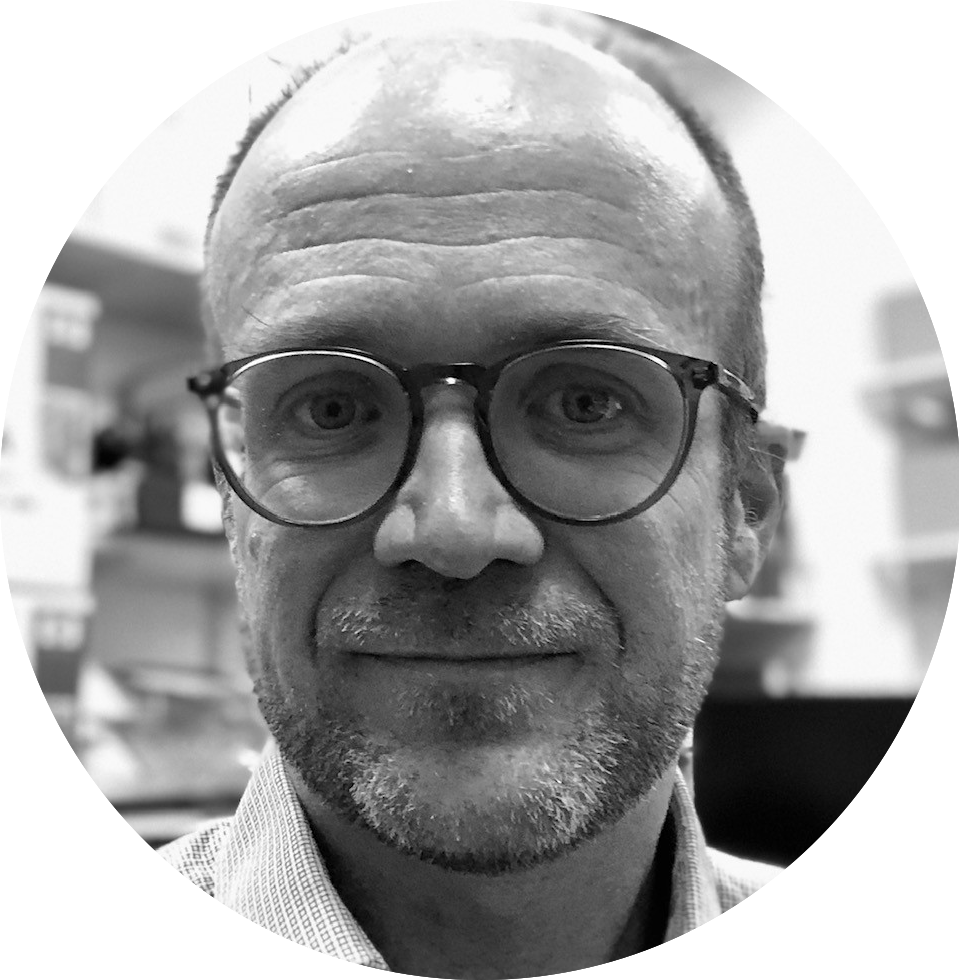
Jasper Morrow, MBChB, PhD
University College London Queen Square
Institute of Neurology
Dr. Morrow is a consultant neurologist at the National Hospital for Neurology and Neurology and Neurosurgery in London. He is clinical lead for the neuromuscular department and lead neurologist for neuromuscular imaging research at the Queen Square Centre for Neuromuscular Diseases, UCL Institute of Neurology. He undertook Neurology training in his native New Zealand before coming to the UK as the ANZAN Fellow in 2008, and staying to complete a PhD at UCL researching Quantitative MRI in Inclusion Body Myositis and Charcot-Marie-Tooth Disease resulting in a first author publication in Lancet Neurology showing that quantitative MRI is the most responsive marker of disease progression in CMT1A. He is now author on over 50 research papers in neuromuscular MRI, including other forms of CMT as well as other inherited and acquired neuromuscular diseases. He is involved in ongoing international natural history studies and clinical trials where MRI is used as a biomarker in many inherited neuropathies including CMT1A, CMTX, CMT1B, CMT2A dHMN and HSN.
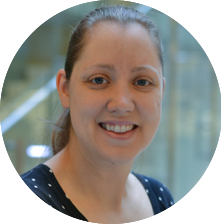
Kathryn R. Moss, PhD
Johns Hopkins University
Dr. Kathryn Moss received her BS degree in Cellular and Molecular Biology from the University of Michigan and her PhD in Biochemistry, Cell and Developmental Biology from Emory University. She studied gene regulatory mechanisms required for neuronal development and function during her dissertation research. Dr. Moss is currently a postdoctoral fellow in the laboratory of Dr. Ahmet Höke at Johns Hopkins University School of Medicine. Her research is focused on understanding the pathogenesis of Charcot-Marie-Tooth disease Type 1A (CMT1A) and Hereditary Neuropathy with Liability to Pressure Palsies (HNPP). She is interested in mechanisms of myelin dysfunction and secondary axon degeneration in CMT1A and HNPP as well as the physiologic function of PMP22. Dr. Moss brings a unique perspective and dedication to her work due to her personal history with CMT1A as a patient.

Thomas Holm Pedersen, PhD
NVD Pharma
Thomas co-founded NMD Pharma and has been CEO of the Company since its inception in 2015. During this time, NMD Pharma has transitioned from early a discovery-stage to clinical-stage company. He has led various financing rounds of the Company including raising one of the largest Series A investments in the sector in Europe in 2018.
The scientific basis of NMD Pharma – utilizing ClC-1 as a novel target for restoring muscle function in neuromuscular disease – comes from the academic work conducted at Aarhus University by Thomas and colleagues. Thomas obtained his PhD from Aarhus University and completed two years of post-doctoral work at Cambridge University. As a scientist, Thomas focused on cellular electrophysiology and ion channel biophysics, developing novel methods to understand the function and regulation of ClC-1 in health and disease. He has published more than 40 high-ranking papers including in Science and PNAS.
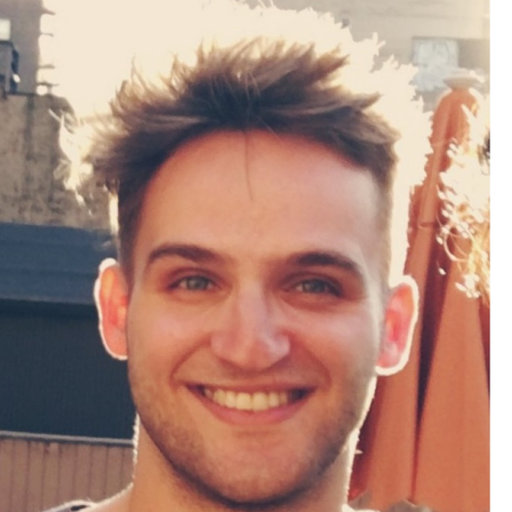
Wolfgang Pernice, PhD
Columbia University
Wolfgang M. Pernice, PhD is an Associate Research Scientist at the H. Houston Merritt Center at Columbia University, Dept. of Neurology. In his current NIH-funded research program, he combines training in pathobiology and molecular medicine with cutting edge machine learning, in order to address major roadblocks in rare disease genomic and translational medicine. His previous research accomplishments include the description of several fundamental regulators of mitochondrial function, of how these participate in the regulation of cellular age, as well as the recent identification of the genetic cause of a novel mitochondrial DNA-depletion syndrome.

Robert Prior, PhD
University of Bonn
Dr. Prior is a Charcot-Marie-Tooth disease (CMT) researcher and X-linked type 1 (CMTX1) patient. Currently a postdoctoral researcher at the University of Bonn, Germany, his work focuses on developing novel human induced pluripotent stem cell (hiPSC) derived models of neuromuscular junctions in the lab of Prof. Volker Busskamp. Dr. Prior completed his PhD in the lab of Prof. Ludo Van Den Bosch (KU Leuven-VIB, Leuven, Belgium), where he worked on several topics, including 1) investigating histone deacetylase (HDAC) inhibitors as a therapeutic strategy for CMT, and 2) modeling of the lipid metabolic phenotype of CMT type 1A patient hiPSC-derived Schwann cell precursors. Dr. Prior actively participated in the launch of the Van Den Bosch group’s spin-off company Augustine Therapeutics, which aims to take novel HDAC6 inhibitors to treat CMT patients, both type 1 and type 2.
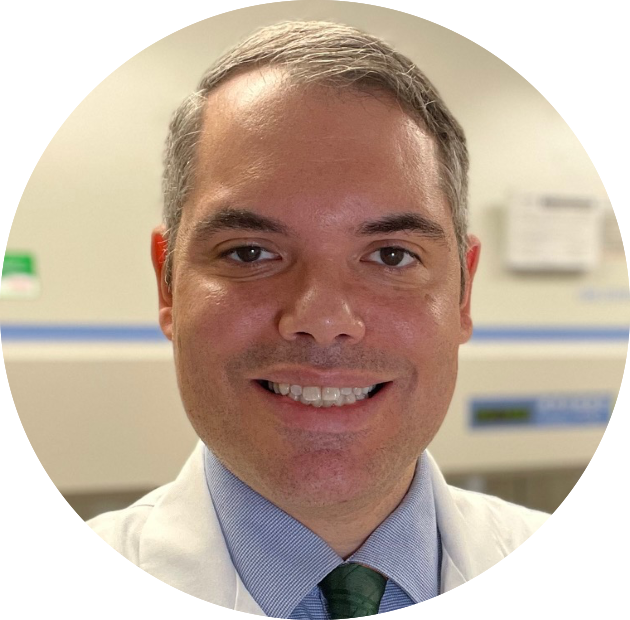
Mario Saporta, MD, PhD
University of Miami
Dr. Saporta is a clinician-scientist and neuromuscular specialist with over 15 years of experience in genetic neuropathy research. He is an Associate Professor of Neurology and Human Genetics and the medical director of the University of Miami CMT Center of Excellence. Dr. Saporta conducts both clinical and translational research in CMT. He is the North America Principal Investigator for the Pharnext Premier trial and he leads a research lab focused on developing and applying human cellular models of CMT for drug discovery and genetic therapy validation.
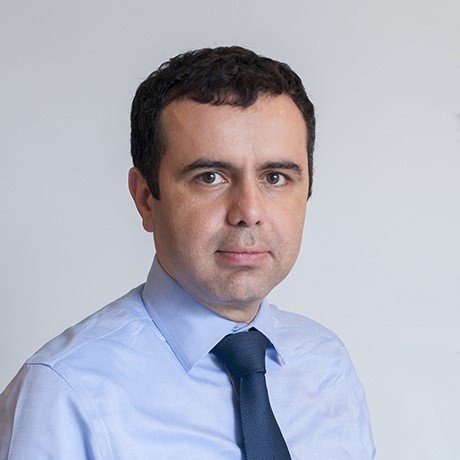
Reza Seyedsajadi, MD
Massachusetts General Hospital and
Harvard Medical School
Reza is a neuromuscular neurologist at MGH and assistant professor in neurology at MGH. He is the director of CMT clinic at MGH and part of inherited neuropathy consortium. His clinical and research focus is in disease outcome measures and clinical trial readiness.

Cleary Simpson
CMT Research Foundation
Cleary Simpson has more than 30 years of experience in the marketing and advertising industries, having held senior positions in general management, sales and marketing, business development, emerging markets and product development. Before joining the Board of CMTRF, she was a Managing Director at consulting firm MediaLink, where she advised Fortune 500 media and entertainment companies and emerging technology companies on business strategy, revenue acceleration and organizational restructuring.
Prior to joining MediaLink, she was Senior Vice President for Global Marketing Solutions at Time Warner Inc., managing relationships with major companies such as Johnson & Johnson, Campbell’s, Wal-Mart, McDonald’s and Cadbury, to develop integrated advertising and content partnerships across Time Warner’s television, print, digital, film and book publishing companies. Earlier, Cleary worked in senior positions at Time Inc. properties, including TIME magazine and Sports Illustrated.
Cleary is a founding Board member at CMTRF and also served on the Boards of Do Something and St. Luke’s School (New Canaan, CT). She holds a BA in History and Asia Studies from Connecticut College and was a Fulbright Fellow in Japan.
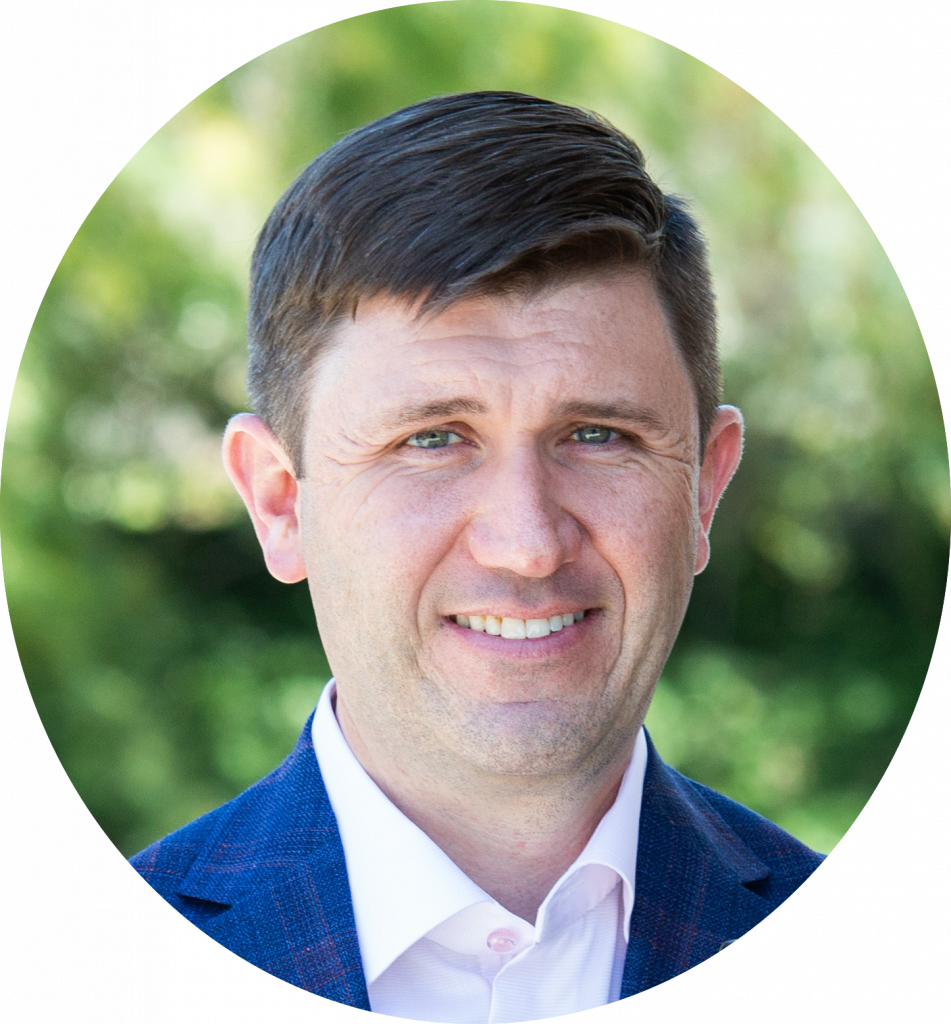
Arthur T Suckow, PhD
DTx Pharma
Dr. Suckow received his BS from the University of Delaware and his PhD from University of California, San Diego. He has worked for Johnson & Johnson, AstraZeneca and Regulus Therapeutics. Dr. Suckow’s extensive experience in fatty acid pharmacology includes advancing small molecules targeting fatty acids and fatty-acid conjugated peptides into early clinical development. Dr. Suckow has received numerous awards including a Beckman Fellowship, NSF graduate research fellowship, a BIOCOM catalyst award and many others.
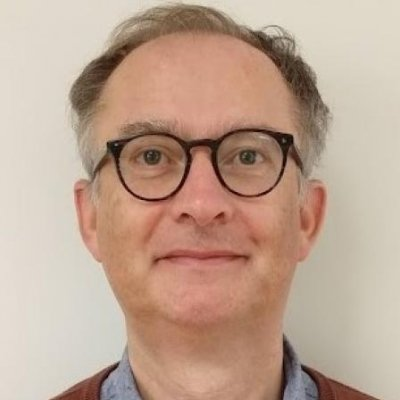
Vincent Timmerman, PhD
University of Antwerp
Vincent is biologist and Full Professor at the University of Antwerp, Belgium, and head of the Peripheral Neuropathy Research Group of the Faculty of Pharmaceutical, Biomedical and Veterinary Sciences since 2002. He won several research prizes for his pioneering work in identifying novel loci and genes for Charcot-Marie-Tooth disease (CMT) and related neuropathies. He published more than 200 peer-reviewed papers and chapters in textbooks. He has supervised a great number of postdocs, PhD students and master students working in this expert area. Vincent has been the organiser of the International CMT Consortium meetings for many years (currently hosted by the Peripheral Nerve Society) and is a member of different scientific advisory and evaluation boards, such as the European Neuromuscular Center (ENMC). Currently, his research is focussed at understanding the biological consequences of mutant genes associated with peripheral neuropathies, and how this knowledge can be translated towards the development of therapeutic strategies. His team offers since 2022 a platform to validate therapeutic compounds (SCREEN4PN) for pharmaceutical companies and CRO’s.
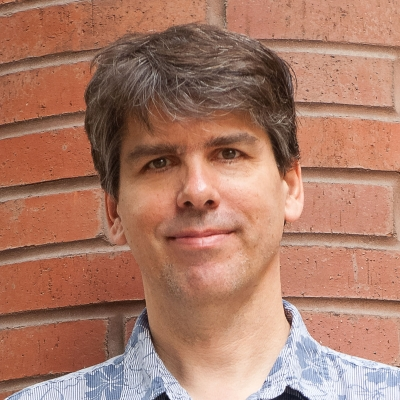
Alexander van der Bliek, PhD
David Geffen School of Medicine, UCLA
Alexander M. van der Bliek, PhD, is Professor of Biological Chemistry at the UCLA David Geffen School of Medicine. He received his undergraduate degree in Biology from the University of Amsterdam in The Netherlands. For his graduate studies, he entered the laboratory of Dr. Piet Borst in The Netherlands Cancer Institute where he studied gene amplification and multidrug resistance in cancer cells and received a PhD in 1988. He then moved to the United States for postdoctoral studies in the laboratory of Dr. Elliot Meyerowitz at CalTech. By cloning the Drosophila shibire gene, he discovered the role of the large GTPase Dynamin in endocytosis. He confirmed this role in mammalian cells through collaboration with Dr. Sandra Schmid at the Scripps Research Institute. In 1993, he was appointed Assistant Professor in the Department of Biological Chemistry at UCLA where he discovered the role of the dynamin-related protein Drp1 in mitochondrial fission. This was followed by further investigations of other proteins involved in mitochondrial fission and fusion. He went through the ranks to become Professor in 2006. The van der Bliek lab remains focused on the cellular mechanisms controlling mitochondrial fission and fusion in mammalian cells. Recent studies have uncovered a novel function of the dynamin-related mitochondrial fusion protein Mfn2, which is affected in CMT2A.
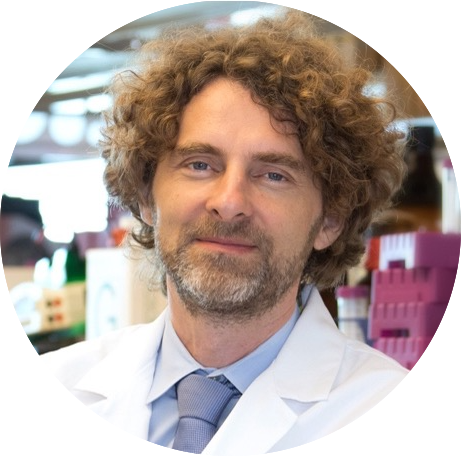
Stephan Zuchner, MD, PhD
University of Miami Miller School of Medicine
Stephan Züchner, M.D., Ph.D., D.Sc. (h.c.), FAAN, is a Professor of Human Genetics and Neurology at the University of Miami Miller School of Medicine. He had served as the Chairman of the Department of Human Genetics for a decade, leading the department to #2 in national rankings. He currently is the inaugural Chief Genomics Officer of the Miller School of Medicine. Dr. Züchner obtained his medical degree from RWTH Aachen University Medical School, where he also trained in Neurology and Neuropathology. In 2015 he received a honorary doctorate degree from the Semmmelweis Medical School at University of Budapest, Hungary, for his contributions to next-generation sequencing and international studies of rare diseases.
Dr. Züchner’s research interests are focused on identifying genomic variation associated with disease, especially CMT. His lab is internationally renowned for being one of the most successful in identifying novel CMT genes and thus ending the diagnostic odyssey for many patients and families. One of the most recent discovery, SORD related neuropathy, is a unique candidate for rapid translation into a therapy for CMT patients. A clinical trial has just begun to test the AT-007 drug (APLT). He also has helped to develop important software solutions for genetic analysis and research data sharing that have been instrumental for the fast-paced discovery in CMT genetics worldwide and has helped countless patients to receive a diagnosis. His team is currently pursuing large – scale genomic studies with the aspirational goal of aggregating 10,000 CMT genomes that would lead to a fundamental improvement of CMT2 diagnoses. Another arm of activities is focused on developing genetic therapies for various forms of CMT and foster collaborations with companies to bring these new drugs to market.
